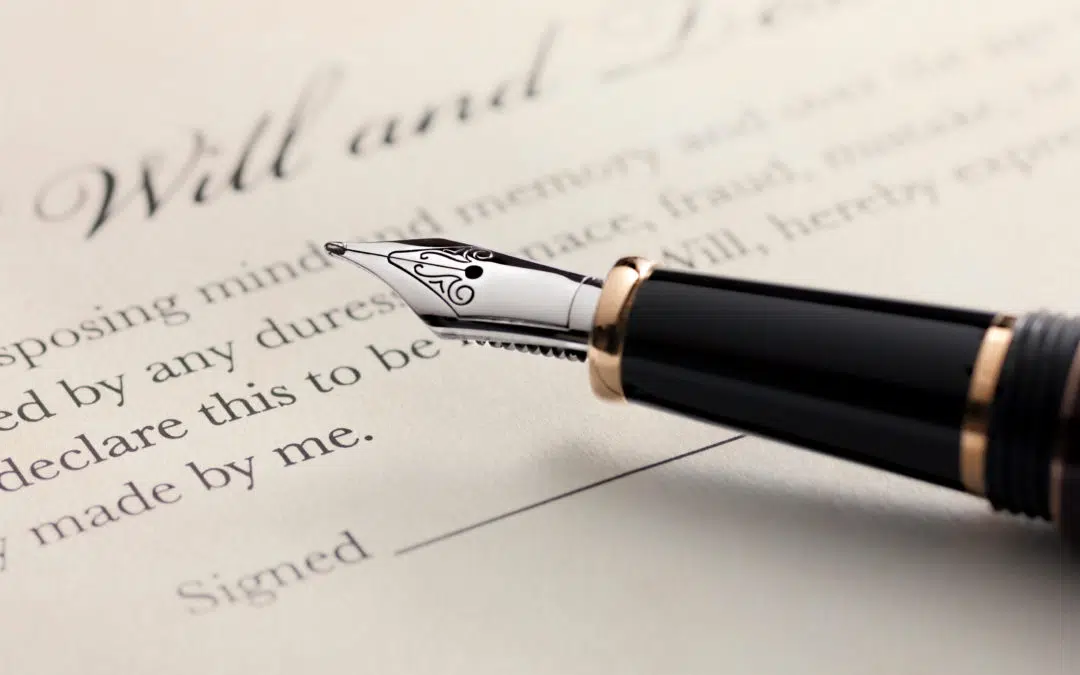For a will to be valid under our legislation, the willmaker needs to execute his or her will in front of two witnesses present at the same time. If a willmaker is unable to personally sign but otherwise has the capacity to make a will, the will can be signed at the direction of the willmaker by another person.
A will not conforming to the legislative requirements is an “informal will”. To prove an informal will is valid, an application may need to be made to the Supreme Court of Queensland at a significant cost to the estate. To be successful, the applicant has to show that the informal will reflects the willmaker’s testamentary intentions (wishes) and also intended for the informal will to be his or her valid will.
As the overarching goal of effective estate planning is to reduce the need for costly litigation, below we answer some frequently asked questions about signing your will during the period of the COVID-19 social distancing requirements to ensure that your will is valid.
Q. With your office temporarily closed due to COVID-19, how do I sign my will?
A. To the extent possible, and if it is safe to do so, we recommend adhering to the formal requirements of signing a will. To assist we will provide you with detailed signing instructions remotely. You will need to make your own arrangements to find your two witnesses. Keep in mind that a witness should not be a beneficiary under the will as, generally, the gift will be ineffective. It is a well-established practice that the willmaker and the two witnesses use the same pen but it’s not a requirement. In the current circumstances it is preferable for each person to use their own pen.
Q. What if I cannot find two witnesses?
A. The current social distancing requirements may mean that it is not possible, or desirable, for your will to be witnessed by two people. If you have only one or no available witnesses, we will provide you with detailed instructions to ensure that it is clear that you intend your will to be your valid and effective will despite not meeting the formal requirements.
Q. Can we witness your signature on a will by video conference?
A. While video conferencing has become one of the most popular ways to communicate, under our legislation your witnesses need to be physically present when you sign your will.
You may be aware of a number of successful cases in which a video, an audio tape or even an unsent text message has been accepted by the court as the last will of the deceased. As noted above, failing to comply with the formal requirements will require an expensive application to the court.
The court has recently made one exception. The court has authorised the Registrar to grant probate of a will witnessed by video conference (and thus avoiding an expensive court application) if the following conditions are met:
1. The will is executed between 1 March 2020 and 30 September 2020;
2. The willmaker is unable to comply with the formal requirements due to the COVID-19 restrictions;
3. The will is witnessed by either one or two witnesses in the presence of the willmaker by way of video conference;
4. A solicitor is involved in one of the following ways:
a. the will is drafted by a solicitor; or
b. the solicitor is a witness; or
c. the solicitor is supervising the execution of the will;
5. The willmaker intends that the will is to take immediate effect as his or her will; and
6. The witnesses are able to identify the document as being a will.
To benefit from the relaxation of the formal requirements, you will need your solicitor to be involved as outlined above.
While the new rules mean that the estate will avoid the cost of an expensive application to prove an informal will, there will be some additional cost in providing the Registrar with the required evidence that the conditions have been met. That is why obtaining specialist legal advice with respect to making your will in these uncertain times is vital.
Q. Can you use an electronic signature on a will?
A. Our legislation specifically excludes a will from being signed electronically. If the will is signed electronically it will be considered to be signed informally. Therefore, it may still be accepted as a will after making an application to the court.
de Groots wills and estate lawyers is here to help you in these uncertain times. If you would like to discuss the above issues or any other estate planning issues, please don’t hesitate to contact us, or visit our website to get started online.



